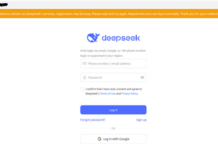By Doug Woolley, General Manager and Vice President, Dell Technologies South Africa
As industries continue to undergo rapid digital transformation, the question on everyone’s mind is, “Will AI take my job?”. The answer isn’t as simple as a yes or no. AI is changing the job landscape, but rather than replacing humans outright, it’s creating new opportunities. While some traditional tasks may be automated, entirely new roles are emerging that require unique skills in AI, data and digital expertise.
In South Africa, a white paper released by the Top Employers Institute has revealed that 64.5% of respondents believe that AI will enhance their career prospects. Additionally, 82% think it will help them acquire new skills, 70% feel it would boost their efficiency, and 58.5% are confident that AI will create new work opportunities. Furthermore, 73.5% said that it would support a better work-life balance.
The Future of Jobs in an AI-Driven World
Many are surprised to learn that AI is as much about creating jobs as eliminating them. The World Economic Forum anticipates that 69 million new roles will be created over the next five years, particularly in areas that demand a strong understanding of AI.
AI is creating a profound shift not only in how work is done but also in the skills required to succeed. For instance, roles such as AI trainers, data engineers and AI strategists are set to become essential across industries. Locally, the need for a wide range of AI skills has grown significantly in recent years, with South African businesses seeking expert leaders who specialise in AI skills to lead their AI initiatives.
The rapid rise of AI mirrors past technological revolutions, where the invention of tractors and computers reshaped the workforce and led to higher-value jobs. This presents an exciting opportunity to rethink and reinvent how we approach our work, making it more fulfilling and efficient.
AI: Expanding Human Potential and Skills
In the AI era, the most valuable employees will be those who bring human qualities – such as critical thinking, creativity, communication and ethical judgment – to complement AI capabilities. Emerging roles such as AI trainers, AI linguists, data scientists, and AI strategists require expertise in AI technologies combined with critical thinking and ethical considerations. These human insight roles, extended with AI, represent the sweet spot of future job opportunities. The result is a more dynamic, fulfilling workplace where humans and AI work in tandem, solving higher-order problems.
Emerging roles will span diverse fields, each requiring a blend of AI proficiency and industry-specific expertise. For instance, AI policy makers will define the ethical frameworks within which AI operates, ensuring it serves society responsibly. In fields like cybersecurity, AI engineers will shift from coding tasks to threat analysis, developing strategies for a world where AI safeguards sensitive information. Ultimately, AI’s core strength lies in handling repetitive and data-driven tasks, freeing up professionals to focus on strategic and creative work.
New Professions in the AI Landscape
AI isn’t only transforming existing roles; it’s paving the way for entirely new job categories. Here are some anticipated new roles that reflect the future of work in an AI-powered world:
- Thermal Plumbers: These specialists optimise heat and power usage in AI data centres, enhancing AI performance and sustainability through advanced thermal management.
- AI Agent Conductors: As AI-powered agents (such as chatbots) take on more sophisticated tasks, AI agent conductors will design and manage these agents, creating seamless interactions between human and AI teams.
- Data Engineers: Data is the fuel of AI. Data engineers ensure that complex systems interact effectively with enterprise data, maintaining data accuracy and usability.
- AI Policy Makers: As AI becomes more pervasive, policymakers will play a crucial role in defining guidelines and ethical standards for AI systems, especially in sensitive areas like healthcare and finance.
- AI System Support Technicians: These specialists configure, monitor and troubleshoot AI technologies, filling a role similar to auto mechanics in the automobile industry, to ensure smooth AI operation and maintenance.
These new roles highlight how essential it is to understand AI’s impact on different fields, anticipate emerging needs and develop the skills to address them. Here are a few insights for professionals and businesses alike:
Preparing for the AI Era: Essential Skills and Adaptability
To thrive in an AI-driven world, working professionals and leaders alike must invest in skills that blend technical and human expertise. According to a recently released report by Oliver Wyman, there’s a clear demand among South African workers for AI skills development. Nearly 85% of respondents expressed a desire for AI training, and 78% said they are receiving some form of training.
Machine learning, natural language processing (NLP), and AI ethics are among the most critical competencies for future job roles. Equally important are adaptability, ethical reasoning and inclusive leadership, which are essential to integrating AI responsibly.
Just as AI is reshaping jobs, it’s also influencing the way teams are structured. Cross-functional teams of data scientists, AI experts, and business strategists will be crucial for AI integration into business processes. In healthcare, for instance, data scientists and clinical professionals can collaborate to create AI-driven diagnostic tools, enhancing patient care. In finance, teams can improve fraud detection by blending AI capabilities with industry-specific knowledge.
A Balanced Approach to AI: Inclusive Leadership
As AI advances, the value of human creativity and ethical judgment becomes even more crucial. Inclusive leadership will guide AI’s role in the workplace, fostering environments where diverse perspectives drive innovation. This is particularly important in regions like EMEA, which bring rich cultural diversity and fresh perspectives to AI-driven challenges.
Leaders must prioritise continuous learning and adaptability, building a culture that empowers employees to embrace AI tools. At Dell, for instance, training initiatives ensure all employees understand AI fundamentals, positioning them for success in the digital workplace. Leaders who cultivate inclusive environments will unlock new ideas, balancing AI’s strengths with the insights that only a diverse team can provide.
Embracing Self-Learning and Continuous Development
In the AI era, self-learning is not just valuable but necessary. Those who engage in continuous learning and actively seek to understand AI’s impact will lead the future of work. Businesses should support employees in gaining certifications, attending AI workshops and staying current on emerging technologies. A proactive approach to learning enables professionals to remain competitive and innovative.
Conclusion: Leading in an AI-Driven Future
As AI shapes the future of work, businesses and individuals alike must invest in building AI-related expertise and fostering inclusive, forward-thinking cultures. For professionals, those who stay informed and adaptable will not only keep pace but also thrive in the AI job market. And for businesses, developing essential skills and embracing an AI-inclusive culture will help lead them in a world where human potential and AI’s capabilities create immense opportunities.
Article Provided




























